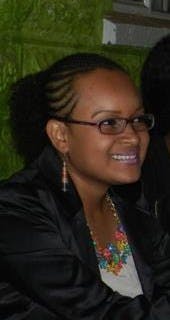Balancing the Equation of Girls' Access to Education in Sudan
Jan 21, 2015
Story
According to internal displacement monitoring centre the number of internally displaced persons in Sudan in 2010 was 4, 5 Million persons and that was before the escalation of war in Blue Nile and South Kordofan region.
Basic education is a right guaranteed by Sudan interim constitution of 2005, unfortunately there is no law that enforcing the provision of basic education or prohibiting the lack of it for both boys and girls.
Girls’ education in the IDP areas around Khartoum, taking Alfath town as example where there is one basic school managed and run by only 4 teachers to observe and teach 8 classes of basic education. In each class there are 120- 140 students. A displaced woman living in Alfath testified that “I know my children are not getting any benefits from going to school, but I keep sending them there because it’s better than leaving them alone in the house while I’m working. I’m sending them to school to keep them away from the crimes happening in the streets.”
In IDP camps in Darfur, because of the war there is a high percentage of school drop outs. Nonprofit organizations tend to open literacy classes and school dropout classes as the government for the whole 10 years of was in Darfur has not taken the issue of education seriously. A nonprofit organization working in South Darfur was running 6 classes for the dropped out girls in the IDP camps around Nyala, providing education to more than 500 young women and girls. The organization was suddenly closed down in 2012 without any explanation from the security service in addition to banning other organizations from running those classes inside the camps. Taking into account it is very dangerous in Darfur for girls and women to leave the camp for collecting wood or bringing water, it became impossible for those girls to get an education outside the camp.
In Khartoum and other states of Sudan, child abuse and rape has become a phenomenon. A volunteer lawyer testified that a 9 years old girl from Soba IDP area was raped by a man living in a nearby fancy neighborhood. He kidnapped her while going back from school; videotaped the rape and threatened her that he will send it to her family if she dared to speak. When her mother knew about what is happening to her and filed a case against him, most of their neighbors and people in the area were saying it is not possible to a rich man to abuse a poor black girl, as he can get any woman and the girl is lying and trying to abuse him for money.
For such a reason many child abuse cases remain away from courts and justice has never been achieved to the victimized children. Furthermore many families tend to keep their girls away from schools fearing of the abuse, taking as example a case happened in Kosti, where a driver who used to pick two sisters to their school, and abusing the elder sister at the age of 12. All the families in Kosti tend to drop their girls out of school to avoid such incident, The 12 years old girl was jailed while the adult driver is moving freely as he received a sentence of leaving Kosti to another town for a whole year.
Apparently barriers to girls’ access to education are sexual violence and rape, the lack of state commitment towards education and making Sudan a safe place for girls to grow and live. Girls in IDP area are coming from female headed households; mostly their mothers are street vendors working on selling tea and food and face harassments and violent police ambushes daily. Displaced women have no choice rather than working as street vendors to feed their families because most of them they haven’t get a proper education and they have limited employment and business opportunities. Hindering their girls’ access to education will only increase the numbers of women with limited opportunities of working/ earning a living.
The solutions are being made by the communities. Education movements like “Education without boarders” are working on improving the schooling environment in the IDP area and poor communities across Sudan by providing seats, books, stationeries and spreading the values of volunteering and how it can make a difference in the lives of many people. Women rights groups and volunteer lawyers are working on raising the awareness of communities by sexual violence against women and girls and encouraging victims to seek justice by taking perpetrators to courts, in addition to advocating for women friendly law reforms. Youth political movements are advocating for regime change and building a state of equality, peace and justice, where all the people are enjoying their rights and freedoms.




